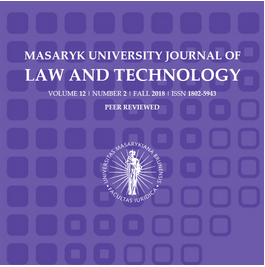The Private Use of the Social Networks by the Civil Servants – a Possible “achilles’ Heel’’ of Personal Data Protection in Public Order and Security I
The Private Use of the Social Networks by the Civil Servants – a Possible “achilles’ Heel’’ of Personal Data Protection in Public Order and Security I
Author(s): Alexandrina-Augusta BoraSubject(s): Law, Constitution, Jurisprudence, Communication studies, ICT Information and Communications Technologies
Published by: Masarykova univerzita nakladatelství
Keywords: social networks; civil servants; police officers; public-private distinction;
Summary/Abstract: Public order and security systems represent structures in which both protection of classified information and protection of personal data are strictly regulated by laws, internal regulations and concrete measures to protect computer communication networks. We conducted an empirical study by interviewing a group of 150 people belonging to the public order and security institutions that shows that a significant percentage of them use social networks outside work program in private life. Based on the conclusions of the study and the empirical observations made on some of the public order and security institutions staff we outline the need to analyze the possible risks to their professional activity deriving from insufficient protection of their personal data during the use of social networks. Furthermore, we argue that these risks are amplified in the case of police officers who have to do undercover work us - ing in the same time the mobile Internet. Finally, we argue that this type of attitude endangers law enforcement and security of the officers and it is influenced by two factors: the weakness of SNSs data protection regulations and the freedom of expression exercised carelessly by the public order and security institutions staff. In order to find remedies for this vulnerability created by this "security breach" derived from the private activity of public order and security institutions staff in social networks, we propose to continue the empirical study to find the reasons behind this type of behaviour and if they have reasonable expectations of privacy related to SNSs policies of data protection. Based on these findings we could be focused on developing an adequate training programme concerning this issue for police officers or the public order and security institutions staff because they are professionals who might give a special attention to these issues.
Journal: Masaryk University Journal of Law and Technology
- Issue Year: 7/2013
- Issue No: 2
- Page Range: 347-360
- Page Count: 14
- Language: English

